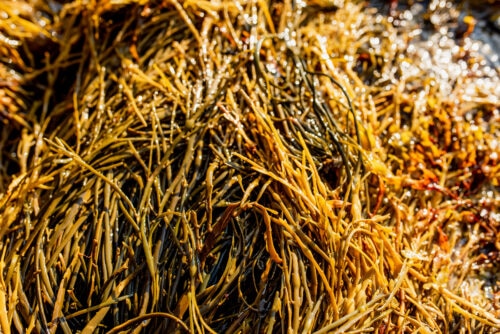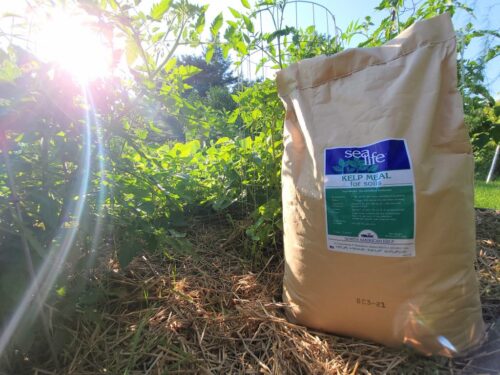Soil conditioners improve soil quality by boosting nutrient levels, increasing water absorption, and improving aeration. The most common conditioners include compost, animal manure, vermiculite, peat, and more. While all types universally amplify the health of your soil in one way or another, their benefits and qualities differ.
If you’re looking for a slow-release soil conditioner for your commercial horticulture, agriculture production, or manufacturing operation, kelp meal is an excellent option. This soil-building seaweed product feeds and stimulates beneficial microorganisms and improves soil quality, texture, and water and nutrient-holding capacity.
In this article, we will walk you through the uses and benefits of kelp meal as a soil conditioner.
What Is Kelp Meal?
The variety North American Kelp harvests, Ascophyllum nodosum, grows primarily off the coast of Maine, Canada, Ireland, Iceland, and Norway. The nutrient dense ocean provides a great environment for the seaweed to grow and flourish. They harvest exclusively from the coast of Maine only.

Kelp meal is made from dried and ground seaweed which can then be used in agriculture to improve soil fertility and promote beneficial microbial growth. They provide beneficial micronutrients, and vitamins that aid in improving soil conditions, reducing drought stress, and increasing frost tolerance.
What Are the Uses and Benefits of Kelp Meal in Soil Conditioning?
Here are the advantages of using kelp meal as a soil conditioner:
Improves Soil Microbial Activity
Ascophyllum nodosum is high in protein, iodine, and other minerals beneficial to the soil. With its variety of nutrients, this seaweed choice energizes and feeds plants of all types.
Provides Natural Ingredients and Nutrients
Seaweed has the advantage of being a completely natural product that contains over 70 vitamins and minerals. You can apply kelp meal in any soil and not worry about toxic substances and other waste byproducts.
SeaLife™ Kelp Meal for Soils From North American Kelp
SeaLife™ Kelp Meal for Soils is a coarse ground kelp meal soil conditioner made from 100% Ascophyllum nodosum. We collect the seaweed off the coast of Maine’s and dry it at a low temperature to maintain its beneficial nutrients, trace elements, amino acids, and carbohydrates.
North American Kelp has been your dependable source of responsibly and sustainably sourced seaweed products for over 50 years! Our experience makes us a leader in the seaweed industry. Let us help you integrate kelp meal into your soil conditioner regimen or products.
Contact us today to learn more about kelp and the products we offer!


